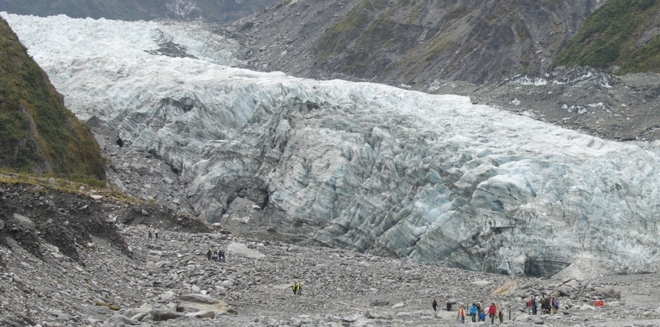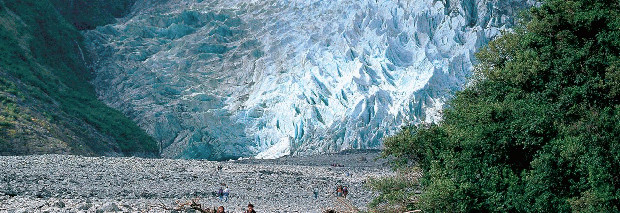You can’t make this stuff up.
Some people are never satisfied, are they? Reuters reports that, after centuries of praying for a local glacier to stop growing, some Swiss villagers are now seeking an audience with Pope Benedict to get his blessing for prayers against the global warming that is causing it to recede.
In 1678, the inhabitants of the Alpine villages of Fieschertal and Fiesch made a formal vow to live virtuously and to pray against the growth of the Aletsch glacier, Europe’s longest, which had caused a lake to flood into their homes.
To reinforce their prayers, they started holding an annual procession in 1862, when the glacier reached its longest during the mini-ice age Europe suffered in the mid-19th century.
But the villagers now want to seek permission from Pope Benedict to change their vow as the glacier is melting fast due to climate change and have requested an audience with him.
“The residents of Fiesch and Fischertal hope that this will happen in September or October and are optimistic that the Holy Father will decide in their favor as he has repeatedly spoken out about climate change,” they said in a statement.
Switzerland’s glaciers shrank by 12 percent over the past decade, melting at their fastest rate due to rising temperatures and lighter snowfalls, a recent study showed.
Oh, a study? Who did it, what does it say? It’s not important enough to tell us, apparently.
It is surprising to hear that a slightly falling temperature has been melting the glacier. Those who know a little about glaciers and where their mass comes from will consider it much more likely that the reported “lighter snowfalls” are in fact responsible for its reduction in size.
It cannot have been higher air temperatures, since temperatures have been going down slightly. Reduced precipitation, on the other hand, will inevitably cause the glacier to slow down through being lighter.
It would be interesting to know if the “study” actually said that all of Switzerland’s glaciers shrank by 12 percent. Odd if they all suffered exactly the same reduction all at the same time. Switzerland’s a big place. Lots of different climate situations.
But who am I to dispute it? After all, they did a “study”. The big implication is that human activities are responsible for all the nice glaciers melting. How, precisely, do they link the melting to anthropogenic carbon dioxide? During a period of declining temperatures! They cannot.
It’s outrageous to imply it.
Views: 21






